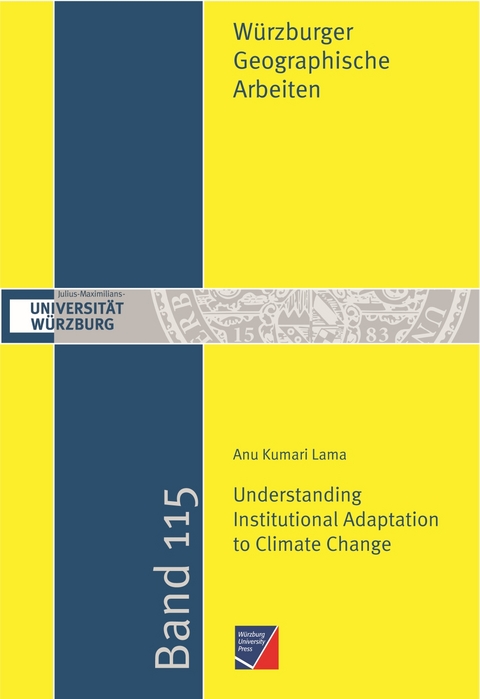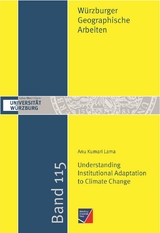Understanding Institutional Adaptation to Climate Change
Social Resilience and Adaptive Governance Capacities of the Nature Based Tourism Institutions in the Annapurna Conservation Area, Nepal
Seiten
2016
Würzburg University Press (Verlag)
978-3-95826-034-4 (ISBN)
Würzburg University Press (Verlag)
978-3-95826-034-4 (ISBN)
This exploratory study examined the sociological process of Nature Based Tourism (NBT) institutions’ adaptation to climate change, in 7 Village Development Committees of the Mustang district, a popular destination in the Annapurna Conservation Area (ACA), Nepal. In particular, the study investigated the social resilience and adaptive governance capacities of the institutions responsible in operating tourism services, business and managing tourism resources in the study area. The analytical and methodological approach used in the study included sphere (a dynamic social space concept), quality of governance, integrative institutional adaptation assessment frameworks and case study action research method.
Institutional social resilience capacities are found to be reliant on socio-political construction of adaptation knowledge and power, produced as a result of several influencing factors. Most important ones include: site and institutions specific political, economic and environmental dispositions, the associated processes of knowledge constructions and volition action, and the social relationships and interaction of the institutions operating within the study area. Adaptive governance capacities hinge on the institutional arrangements, the procedural aspects of adaptation governance and the governmentality. These are reflective of the diverse legal frameworks, the interiority perspective of the decision making and governance practices of the NBT institutions.
Institutional social resilience capacities are found to be reliant on socio-political construction of adaptation knowledge and power, produced as a result of several influencing factors. Most important ones include: site and institutions specific political, economic and environmental dispositions, the associated processes of knowledge constructions and volition action, and the social relationships and interaction of the institutions operating within the study area. Adaptive governance capacities hinge on the institutional arrangements, the procedural aspects of adaptation governance and the governmentality. These are reflective of the diverse legal frameworks, the interiority perspective of the decision making and governance practices of the NBT institutions.
Geboren 1973 in Kathmandu, Nepal, M.A.Sc.
| Erscheinungsdatum | 21.05.2016 |
|---|---|
| Reihe/Serie | Würzburger Geographische Arbeiten ; 115 |
| Verlagsort | Würzburg |
| Sprache | englisch |
| Maße | 165 x 240 mm |
| Gewicht | 410 g |
| Einbandart | Paperback |
| Themenwelt | Naturwissenschaften ► Geowissenschaften ► Geografie / Kartografie |
| Naturwissenschaften ► Geowissenschaften ► Meteorologie / Klimatologie | |
| Schlagworte | Adaptive governance • Annapurna Conservation Area • Klimawandel • Mustang District • Nachhaltigkeit • Naturtourismus • Nepal • Protected areas • Regionalentwicklung • Sustainable Nature Based Tourism • Tourismus |
| ISBN-10 | 3-95826-034-9 / 3958260349 |
| ISBN-13 | 978-3-95826-034-4 / 9783958260344 |
| Zustand | Neuware |
| Haben Sie eine Frage zum Produkt? |
Mehr entdecken
aus dem Bereich
aus dem Bereich
über eine faszinierende Welt zwischen Wasser und Land und warum sie …
Buch | Hardcover (2023)
dtv (Verlag)
24,00 €
Buch | Hardcover (2024)
Schweizerbart'sche, E. (Verlag)
24,00 €
Eine Einführung in die spezielle Mineralogie, Petrologie und …
Buch | Hardcover (2022)
Springer Spektrum (Verlag)
59,99 €




